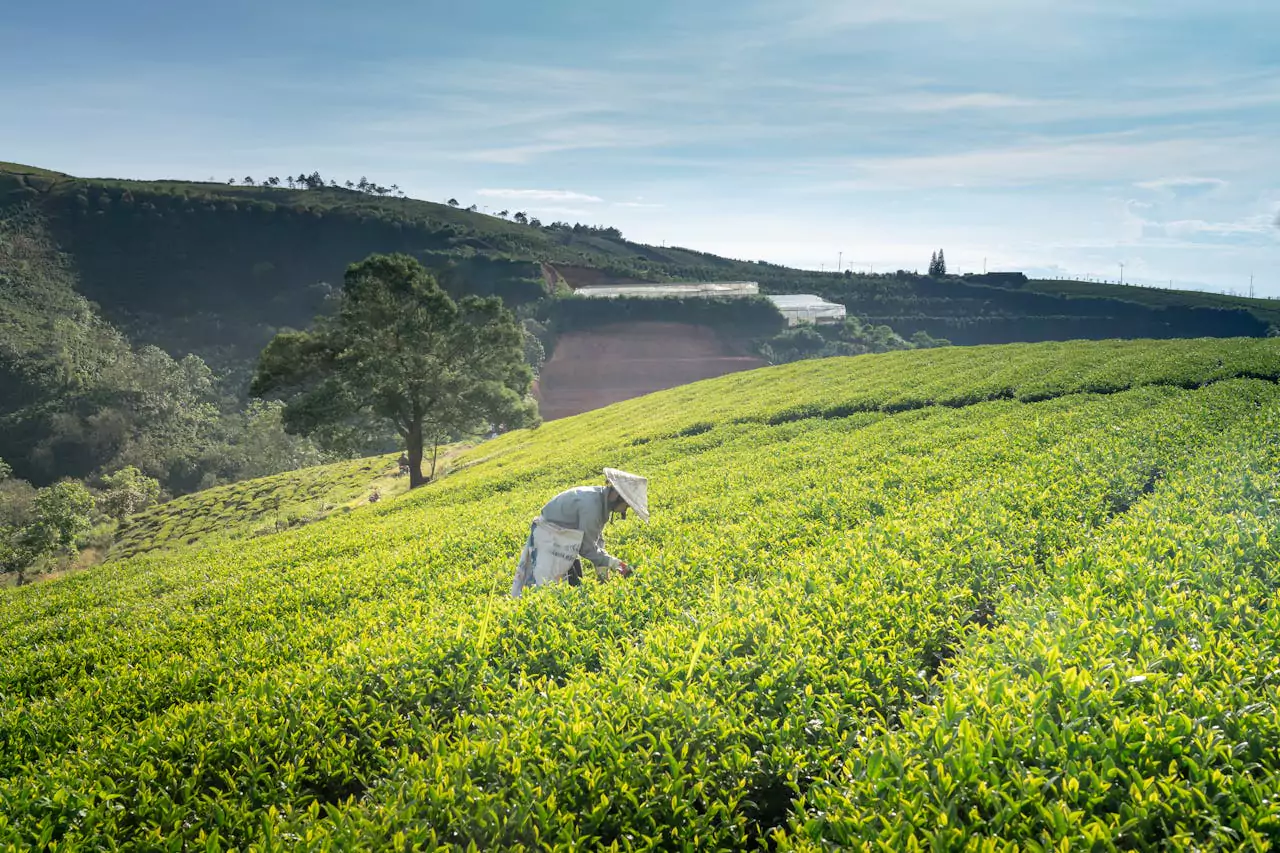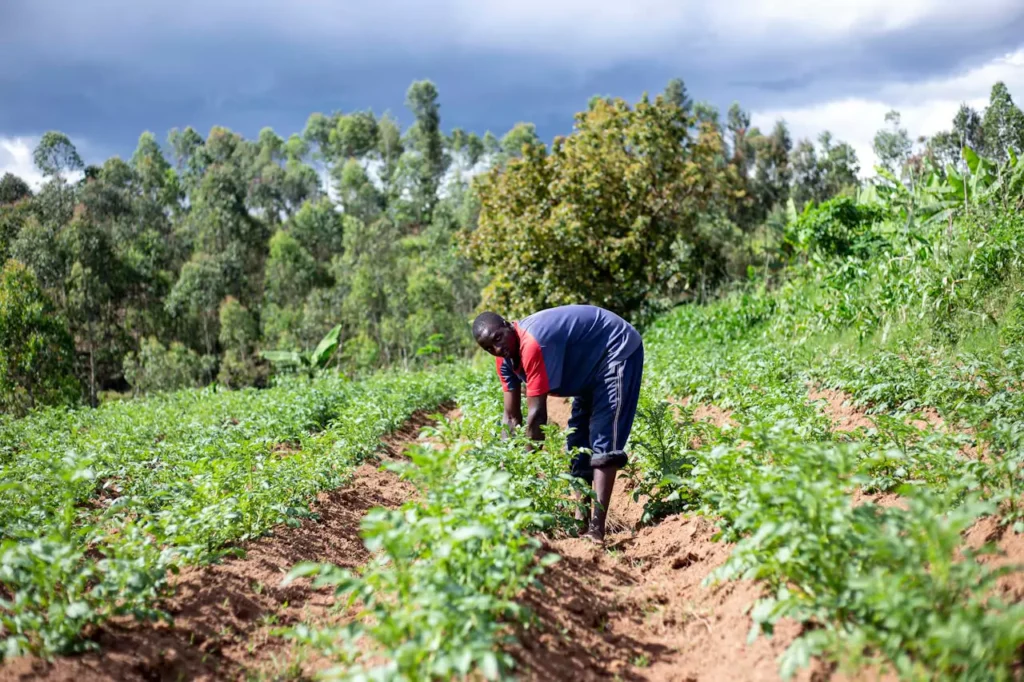
Sustainable Agriculture Global Biologicals Partnership Strengthens Growth
Farmers worldwide who are seeking effective biological solutions to optimize their nitrogen fertilizer use are poised to benefit from a groundbreaking partnership between Syngenta Crop Protection and Ceres Biotics. This collaboration is designed to increase farmer access to VIXERAN®, a novel biostimulant that enhances plant nutrient uptake and contributes to sustainable agricultural practices.
VIXERAN® is an innovative biostimulant derived from the endophytic bacteria Azotobacter salinestris strain number CECT9690. Endophytic bacteria are unique in their ability to colonize plant tissues without causing harm, making them a valuable asset for plant health and nutrient absorption. VIXERAN® operates through multiple mechanisms, enabling plants to efficiently access nitrogen from the environment via their leaves and root systems. This biostimulant is not a replacement for traditional nitrogen fertilizers but rather a complementary tool that enhances their effectiveness, providing farmers with an alternative approach to crop nutrition.
The Role of Nitrogen in Agriculture
Nitrogen plays a crucial role in plant growth, influencing critical processes such as leaf-area expansion, biomass production, and overall yield. Although nitrogen constitutes about 78% of the atmosphere, plants are unable to utilize atmospheric nitrogen directly. Sustainable Agriculture Traditionally, synthetic nitrogen fertilizers have been used to bridge this gap. However, their production relies on an energy-intensive industrial process, leading to significant financial costs and environmental concerns.
The widespread use of synthetic nitrogen fertilizers has been associated with increased greenhouse gas emissions, soil degradation, and water pollution. Sustainable Agriculture The excessive application of these fertilizers can result in nitrogen runoff, contributing to issues such as algal blooms in water bodies and long-term damage to soil health. Sustainable alternatives like VIXERAN® offer a promising solution to mitigate these environmental challenges while maintaining high crop yields.
Syngenta and Ceres Biotics: A Strategic Collaboration
Jonathan Brown, Global Head of Seedcare and Biologicals at Syngenta, emphasized the company’s commitment to bringing cutting-edge biological solutions to farmers worldwide. Sustainable Agriculture “Syngenta is investing significantly to bring the most innovative biological solutions to farmers around the world. Biostimulants that boost the nutrient use efficiency of crops have a significant role in strengthening the sustainability of agriculture and are integral to Syngenta’s efforts to improve both crop yields and soil health. We are excited to work with Ceres Biotics in this fast-evolving area of plant nutrition,” Brown stated.
Ceres Biotics, a leading player in biological solutions, shares a similar vision for sustainable farming. Emilio Marin, CEO and co-founder of Ceres Biotics, highlighted the significance of the collaboration: “We are excited to collaborate with Syngenta to bring to the market novel and sustainable biostimulants that improve nutrient use efficiency and maximize yield, helping farmers implement more sustainable agricultural practices. Sustainable Agriculture VIXERAN® will be accessible to farmers globally, and this is a big step towards building up more sustainable crop management systems.”

This partnership underscores the growing recognition of biologicals as an essential component of modern agriculture. By leveraging the Sustainable Agriculture strengths of both companies, Syngenta and Ceres Biotics aim to expand the adoption of biological solutions and provide farmers with practical tools to enhance productivity while reducing environmental impact.
The Benefits of VIXERAN® for Farmers
VIXERAN® offers farmers greater flexibility in nitrogen management, optimizing crop performance in two key ways:
- Complementing Standard Nitrogen Fertilization Programs: By integrating VIXERAN® into their existing fertilization strategies, farmers can effectively boost yield potential beyond traditional methods. The biostimulant works in synergy with synthetic fertilizers, improving nitrogen use efficiency and minimizing nutrient losses.
- Providing Yield Stability Under Challenging Conditions: In situations where nitrogen availability is reduced due to environmental factors or supply constraints, VIXERAN® can help farmers maintain their yield targets. This adaptability is particularly valuable in regions where nitrogen access is limited or where regulatory restrictions on fertilizer use are in place.
Additionally, the adoption of biologicals like VIXERAN® aligns with the increasing demand for sustainable agricultural practices. Sustainable Agriculture Consumers, policymakers, and industry stakeholders are advocating for more eco-friendly farming solutions, and biostimulants present a viable option for reducing the agricultural sector’s environmental footprint.
The Global Expansion of VIXERAN®
The new agreement builds upon an earlier collaboration between Syngenta and Ceres Biotics, which successfully introduced VIXERAN® in the European Union. Sustainable Agriculture With this expanded partnership, the biostimulant will now be made available to markets worldwide, further accelerating the adoption of sustainable farming solutions.
Global expansion efforts will focus on regions with high agricultural activity, particularly areas where nitrogen management is a significant concern. Sustainable Agriculture By providing farmers with an alternative approach to nitrogen fertilization, this initiative aims to reduce dependency on synthetic inputs and promote more resilient cropping systems.
The Future of Biologicals in Agriculture
The increasing reliance on biological solutions like VIXERAN® marks a significant shift in agricultural practices. The agricultural industry is gradually moving away from traditional chemical-intensive approaches and embracing innovations that enhance soil health, improve nutrient efficiency, and support long-term sustainability.
Biologicals, including biostimulants, biofertilizers, and biopesticides, are gaining traction as viable tools for modern farming. Advances in microbial research and biotechnology are paving the way for new products that enhance plant resilience, optimize resource use, and contribute to more environmentally friendly food production systems.




